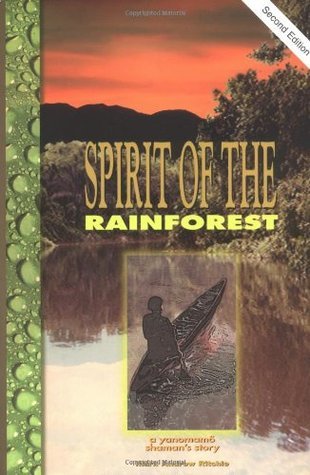
Stranger in the Forest: On Foot Across Borneo
Book Description
Lost in the heart of one of the world's most enigmatic jungles, a lone traveler treks through Borneo's lush chaos, surrounded by towering trees and the whisper of ancient spirits. Eric Hansen paints a vivid portrait of survival, where every step unravels hidden dangers and unforeseen wonders. As he encounters indigenous tribes, exotic wildlife, and the shadows of deforestation, dilemmas of culture and conservation rise to the surface. With the fragile balance of nature hanging in the balance, will one man's journey spark a change in perspective, or be swallowed by the very wilderness that captivates him? What secrets lie beneath the canopy?
Quick Book Summary
"Stranger in the Forest" chronicles Eric Hansen’s audacious journey on foot across the interior of Borneo, one of the world’s wildest and least-explored rainforests. Undertaking a six-month trek accompanied only by his Penan guides, Hansen immerses himself in the complex realities of jungle survival, indigenous cultures, and the environmental pressures facing the island. His account is equal parts adventure memoir and anthropological study, mapping both the outer landscape and the inner transformation that comes from surrendering to the forest’s rhythms. Through encounters with tribal peoples, rare wildlife, and looming threats of deforestation, Hansen provides thoughtful reflections on the fragile relationship between humans and nature. The result is a lyrical, riveting meditation on survival, cultural encounter, and the endangered beauty of Borneo.
Summary of Key Ideas
Table of Contents
Immersion in the Bornean Rainforest
Eric Hansen embarks on an ambitious trek across Borneo, determined to cross the equatorial island on foot—a feat almost unheard of by outsiders. Before his journey, he spends time preparing for the physical demands and learning about the local landscape. Once immersed in the vast and intimidating jungle, Hansen confronts the daunting realities of extreme isolation, dense terrain, and ever-present natural hazards. The rainforest, with its cacophony of sounds and teeming flora and fauna, envelops him in an environment at once profoundly beautiful and deeply threatening.
Cross-Cultural Encounters and Indigenous Wisdom
Integral to his survival are the Penan, one of Borneo’s indigenous forest peoples, who agree to guide Hansen through the jungle. Through their eyes, he glimpses a radically different approach to life—one marked by acute environmental awareness, resourcefulness, and a spiritual connection with the land. Hansen learns to hunt, forage, and navigate according to traditional methods and develops a deep respect for Penan customs. However, profound differences in worldview surface, forcing him to confront the limitations of his own cultural understanding and the complexities of cross-cultural interaction.
The Physical and Psychological Demands of Survival
The journey tests Hansen physically and psychologically. He endures disease, starvation, and exhaustion, all while making do with the sparse resources the jungle provides. Surviving in the forest requires immense adaptability and humility, as well as patience with the Penan’s pragmatic approach to travel and decision-making. Hansen’s initial expectations of progress and control are challenged by the slow, cyclical pace of jungle life, resulting in moments of frustration, introspection, and eventual acceptance.
Environmental Challenges and Conservation Dilemmas
Along the way, the shadow of commercial logging and deforestation looms over the rainforest, threatening both its ecological diversity and the Penan way of life. Hansen documents the increasing encroachment of modernity—interviews with loggers, visible scars in the forest, and the economic dilemmas that pit conservation against livelihood. The narrative raises probing questions about humanity’s extractive relationship with nature, the ethics of development, and the rendering of indigenous cultures as collateral damage in the race for resources.
Spiritual Perspectives and Personal Transformation
As he completes his trek, Hansen is transformed by the journey. The immersive experience in the jungle gives rise to a renewed appreciation for the planet’s fragile ecosystems and the knowledge systems of its original inhabitants. The rainforest, with its raw challenges and profound grandeur, compels him to reflect on his own place within the web of life. Ultimately, "Stranger in the Forest" is both a personal odyssey and a call for greater empathy, humility, and stewardship in our relationship with the natural world.
Download This Summary
Get a free PDF of this summary instantly — no email required.





